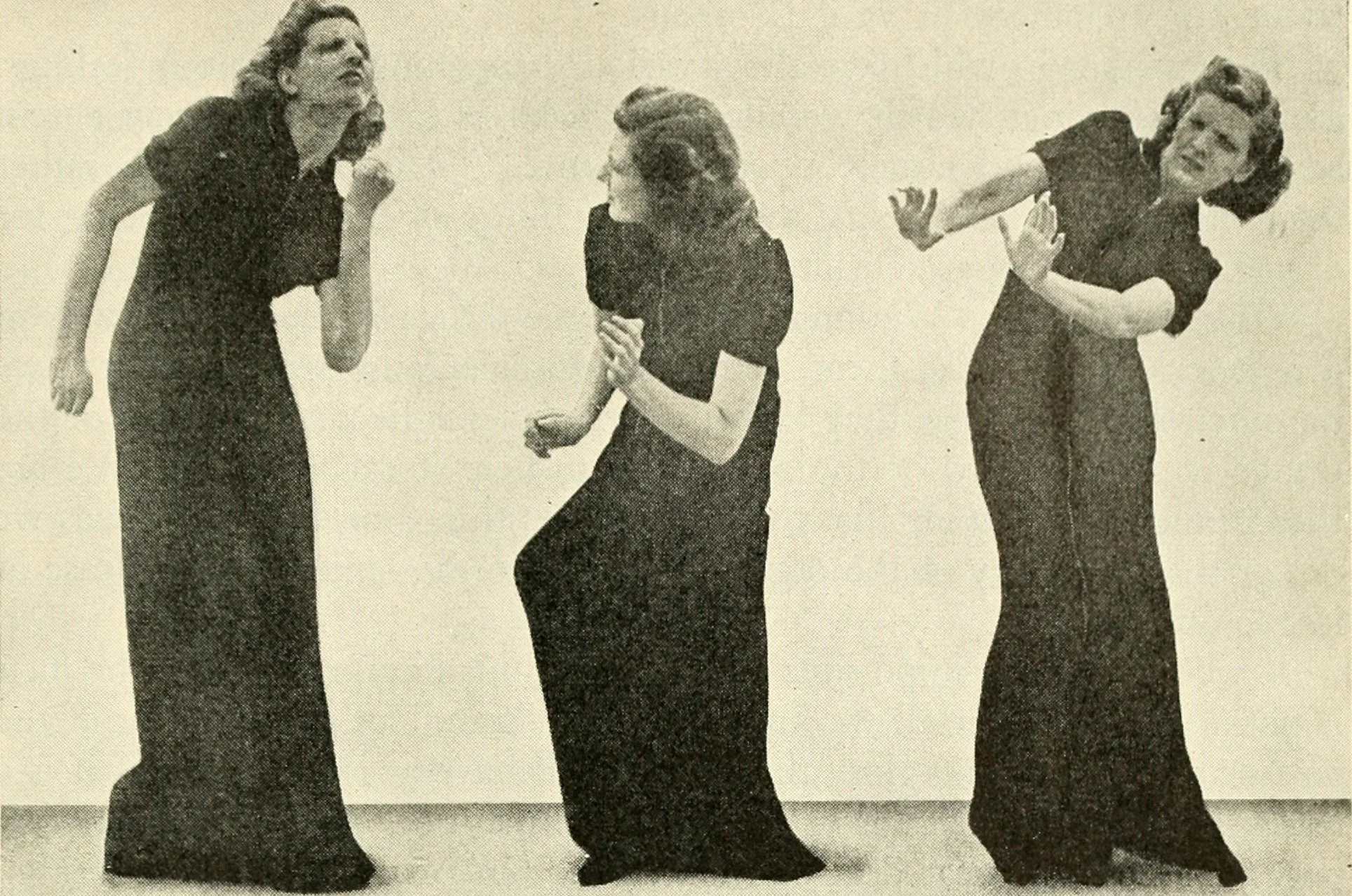Listening for the "ugh"
Me, back when I did customer service. (Biology and Man, 1944)
When you're overwhelmed at work, there is an excess of inputs, resulting in more information than you can effectively process.
Everything feels bad, and nothing seems to be getting any better.
At those times, we ought to pick something small to do, commit to it, and get it all the way done, ignoring everything else for that time. Then, we can repeat the process with something else. These little wins can help us chip away at the overwhelmingness.
Things get more interesting when the stress level goes down just a little bit. As our overwhelm abates, we start to see patterns in the work. We can pick up subtler hints about how we got overwhelmed in the first place. We can see the habits that led to our sense of being out of control, the way putting one dish in the sink can be a harbinger of kitchen chaos.
To do this, we listen for the feeling of "ugh" that comes over us with respect to certain tasks. If we pay attention to our negative feelings, they will point us to our procrastinatory tendencies, broken systems, and leadership weaknesses. And they will guide us toward the difficult conversations we need to have, the hard work we need to do, and the resulting personal and professional growth.
For example, I might (and often do) experience that "ugh" when I open an email. Closing the email again and ignoring it is easy enough, but I'm missing an opportunity for growth and development. Plus, whatever tasks are associated with that email are neglected as long as I ignore it. The "ugh" is an important signal about where my real work is, and some of that work might be emotional as well as practical.
A common issue is that the email requires me to say no. Saying no is uncomfortable, and I have learned from experience that it doesn't get easier when you put it off.
After a day or so, that original "ugh" email is buried under another hundred emails, fifty texts, and five phone calls from various people. However, I still have a nagging sense of obligation associated with it. If one or more of the other emails, texts, or phone calls carries a similar "ugh," I can easily tip into overwhelm.
The solution, then, is to listen carefully for that "ugh," and deal with it (which could mean making a solid plan for dealing with it). Then, I can listen for the next "ugh" and deal with that. Instead of playing hot potato with myself, I'm taking responsibility.
Unfortunately, dealing with the "ugh" isn't always straightforward. Another common source of this feeling is encountering a problem I don't know how to solve. Acknowledging this is half the battle — but solving the problem is the other half, and can't always be done in the moment. Again, making a plan to deal with the problem and adding that plan to my to-do list can reduce the potential for overwhelm.
A hearty "ugh" can also result from the recognition that a decision needs to be made or a system needs to be built. Sometimes, a to-do item is the tip of the iceberg and it's connected to a bunch of other things that have been frustrating, confusing, or annoying me.
It takes effort and attention to unpack all of these things and figure out what's causing the negative feelings, but that's the real work that will ultimately make a lasting difference in my world. Instead of being at the mercy of random irritations that pop up, I can be proactive. I can prevent not just the overwhelm, but eventually the "ughs" themselves.
However tempting it is to ignore and avoid the "ughs," it's better in the long term to listen to what they are telling us. When we tackle them, one at a time, we are growing stronger -- the next wave will be easier. We might even begin to relish the feeling of "ugh" as a sign that we've found something to improve. And there will always be something to improve, so we might as well embrace it.





